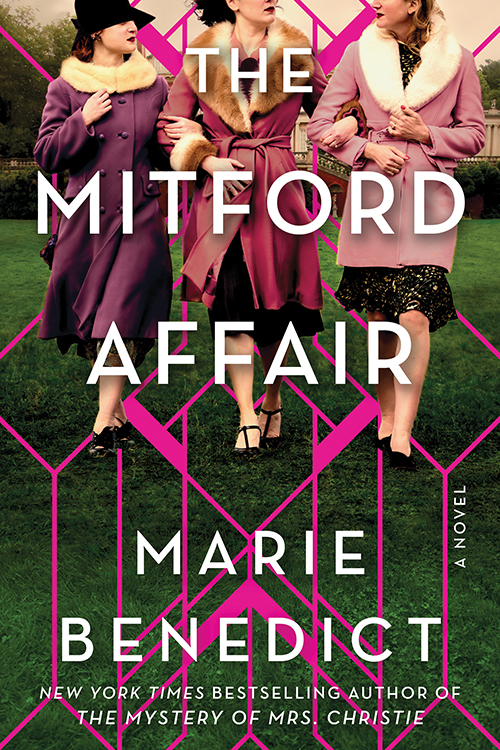In
their time, the 1930s onward, the sisters made their mark in England in the
literary, social, and political arenas. The Mitfords could trace their origins
in Northumberland, a county in Northern England that borders Scotland, back to
the Norman Conquest (the 11th century). The Times journalist
Ben Macintyre dubbed the sisters as “Diana the Fascist, Jessica the Communist,
Unity the Hitler-lover; Nancy the Novelist; Deborah the Duchess, and Pamela the
unobtrusive poultry connoisseur.”
The
novel is mostly devoted to three of the sisters--Nancy, Diana, and Unity--with
the others playing smaller roles. Diana falls out of favor with her family when
she divorces her husband Bryan Guinness of the Guinness family brewing fortune to
marry a fascist British leader Oswald Mosley. Her sister Unity becomes
fascinated by fascism and Adolph Hitler, working her way into his personal and
public life, moving to Germany to cheer him on in his endeavor to unite former
lands with Germany.
The
chapters written with the points of view of Diana and Unity are unique in
showing a softer side of Hitler that most readers could hardly imagine:
“Sometimes it’s hard for her [Diana] to believe that this kind gentleman with
the most impeccable manners is the same person who so boldly and unexpectedly
violated the Munich Agreement…”
In
her own way, Nancy the Novelist, tries to persuade her sisters in this explosive
political climate leading up to World War II to realize that they are being
used by Hitler to further his plans for bringing Great Britain into the fold.
Nancy feels forced to choose between her family or her country as September 1,
1939, draws near.
Marie Benedict’s subjects
do not always interest me, but her writing draws me in each time. Tiring of the
glut of world war books, I found a
different perspective of the war from those who lived through it. Benedict is a
lawyer with more than 10 years of experience as a commercial litigator. She
lives with her family in Pittsburgh.
While New York City lawyer, Marie dreamed of unearthing the hidden historical
stories about strong women. The women featured in her novels include the
physicist wife of Albert Einstein in The Other Einstein, Clara Kelley,
the woman who encouraged Andrew Carnegie to become a philanthropist, in Carnegie’s
Maid, and Agatha Christie, mystery writer supreme, in The Mystery of
Mrs. Christie. Her other books include The Only Woman in the Room
about Hedy Lamarr and her invention, Lady Clementine about
Winston Churchill’s wife who also happened to be related to the Mitford family,
and The Personal Librarian about Belle da Costa Greene, the personal
librarian to J.P. Morgan.






